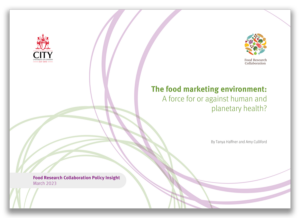UK agriculture faces a range of challenges, including an environmental crisis, pressures on land-use, competitiveness, technological innovation, and a growing population. Changes in practice and in leadership are urgently needed. This Policy Insight explores whether our agricultural universities and colleges are well enough resourced and appropriately staffed to produce graduates of the calibre needed to see the transition through.
Writing with the benefit of many years in higher education in the sector, Professor Jo Price argues that the successful implementation of sustainable agricultural policies will depend on better-funded, higher-quality and higher-prestige agricultural teaching and research. To achieve this, she calls for a long-term strategy for education and training in sustainable agriculture.
Agriculture should be classified as a STEM subject, and agriculture degrees should be funded at a high level, comparable to medicine or engineering. To unite these goals and chart a course, Professor Price proposes a National Academy of Sustainable Agriculture. And given we have a new king with well-known credentials in the field, she suggests that a major university could establish a Regius Chair in the subject.


